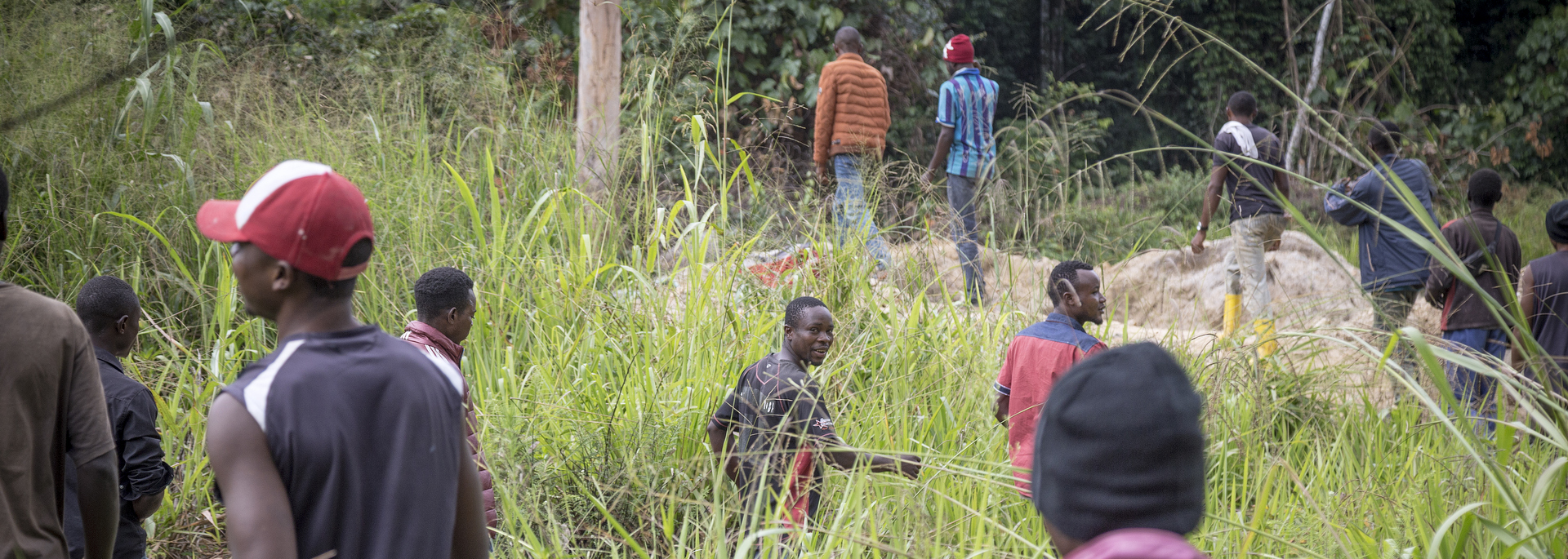
Our Collaborations
For more than 30 years, partnership has been at the heart of IMPACT’s work.
Today, we continue to value our collaborations—with civil society partners and multi-stakeholder allies—and partnership remains an integral pillar of our work.
Civil Society Organizations
Alliance for Responsible Mining
The Alliance for Responsible Mining (ARM) is an international non-profit, established in Colombia which aims to make artisanal mining more responsible. It supports artisanal miners to improve livelihoods and their quality of life. ARM is an implementing partner on the Foundations for Peace project in Burkina Faso.
Club des Volontaires pour l’Appui aux Peuples Autochtones (CVAP)
Development Research and Social Policy Analysis Center
Kimberly Process Civil Society Coalition
REAFECOM
The Network for the Empowerment of Women in Mining Communities (REAFECOM) is the first association of women artisanal miners in Democratic Republic of Congo’s Ituri Province. Launched in 2018, the association represents the interests of women miners in their communities. IMPACT is supporting the association’s efforts to empower women in mining communities.
Reseau d’Innovation Organisationelle
Solidarity for Integrated Peace and Development (SOFEPADI)
Zimbabwe Environmental Law Association
The Zimbabwe Environmental Law Association (ZELA) is a public environmental law group promoting environmental justice, sustainable and equitable use of natural resources, democracy and god governance in the natural resource and environment sector. ZELA has been an implementing partner for IMPACT’s Digging for Equality project in Zimbabwe.
Academic Institutions
Carleton University
Queens University
IMPACT collaborates with the Smith School of Business at Queen’s University in Kingston on research into global supply chain assessments.
Colorado School of Mines
IMPACT is working together with the Colorado School of Mines and I.R. Consilium on a multidisciplinary, collaborative research project entitled Understanding and Disrupting Key Convergence Nodes of the Illicit Gold and Mercury Supply Chains in Latin America and Africa. This project will contribute to a better understanding of illicit supply chains and the ability to detect, disrupt, and disable them through an examination and comparison of key convergence nodes in the global supply chains for illicit gold and mercury in Latin America and Africa, with a focus on Peru and Kenya. The five-year project is funded by the National Science Foundation (NSF).
Governments and Regional Institutions
Government of the Democratic Republic of Congo (DRC)
Governments of Uganda
International Conference on the Great Lakes Region (ICGLR)
Private Sector
Fair Trade Jewellery Company
Toronto-based Fair Trade Jewellery Company (FTJCo), is a world leader and innovator in traceable metals, diamonds and gems. Since 2006, the company has set the standard for traceable jewellery, achieving many firsts including being the first jeweller to offer Fairtrade and later Fairmined gold to North America. In 2017, Fair Trade Jewellery Co. began purchasing gold from IMPACT’s Just Gold project and is the first manufacturer and retailer in the world, to offer conflict-free and traceable artisanal gold from Democratic Republic of Congo to consumers.
Natalie Marie Jewellery
Based in Sydney, Australia, Natalie Marie Jewellery has hand-crafted pieces using traditional techniques since the studio’s debut in 2012. Natalie has created a label which has at its heart an ethos based on connection, sentiment and originality. The studio works with their suppliers to understand their supply chain and use responsible gems and metals in their pieces. As a business, they do their utmost to leave a lighter, more responsible footprint on the environment, while also believing they can do more. As part of this commitment, Natalie Marie Jewellery donates 1% of their online sales to IMPACT.
Memberships and Affiliations
Africa-Canada Forum
Alliance 8.7
Alliance 8.7 is a global partnership to eliminate forced labour, modern slavery, human trafficking, and child labour around the world. IMPACT is a member of the alliance.
Environmental Peacebuilding Association
European Partnership for Responsible Minerals
Forum des ONGI-RDC
IMPACT is a member of the independent forum of international organizations working in Democratic Republic of Congo. The forum aims to help members address key issues for an efficient and effective use of aid resources in the country.
OECD
The Organisation for Economic Co-operation and Development (OECD) developed the OECD Due Diligence Guidance for Responsible Supply Chains of Minerals Conflict-Affected and High-Risk Areas, a voluntary set of guidelines for the private sector to responsibly source minerals. IMPACT advised on and contributed to the development of the OECD Due Diligence Guidance, including its annexes on 3Ts and artisanal gold. We are also currently serving as civil society co-chair of the Multi-Stakeholder Steering Group, which supports its implementation. We provide capacity building to stakeholders around the world—including West Africa and the Great Lakes region—on implementing the Guidance. We also strongly advocate for legal adoption of the Guidance as part of our technical support to governments.
